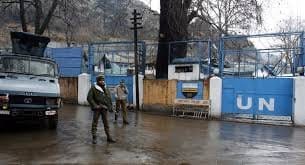
In a move that caught many by surprise, India has asked the United Nations Military Observer Group in India and Pakistan (UNMOGIP) to pack up and leave Delhi. This decision is a bold one, signaling India’s long-standing belief that the UN’s role in Kashmir just isn’t needed anymore.
India’s Take on UNMOGIP
India has been pretty clear for some time now. The UNMOGIP, which was set up in 1949 to monitor the ceasefire between India and Pakistan, no longer has a role, according to Indian officials. Their argument centers on the 1972 Simla Agreement, which both India and Pakistan signed, agreeing to settle their differences through peaceful negotiations and pledging not to change the Line of Control (LoC) unilaterally. From India’s perspective, because the LoC was established under the Simla Agreement, the presence of UNMOGIP has simply become unnecessary.
What Pakistan Thinks
Of course, Pakistan sees things a bit differently. They argue that UNMOGIP’s mandate is still valid and hasn’t been formally ended by any resolution. Pakistan continues to host UNMOGIP personnel, believing their role is essential in keeping an eye on the situation along the LoC. So, there’s a bit of a standoff here on how each country views the role of the UN in the region.
What This Means for India and Pakistan
By asking UNMOGIP to leave, India is making a strong statement about its interpretation of the Simla Agreement. It’s clear they want to take charge of the Kashmir issue themselves, without any outside interference. While India’s move might be seen as a diplomatic flex, it’s also likely to stir the pot with Pakistan, which still sees UNMOGIP as a neutral party that ensures the ceasefire is being respected.
Final Thoughts
This is definitely a big diplomatic move by India. Asking the UN team to leave signals that India wants to handle Kashmir directly through bilateral talks, just like the Simla Agreement suggested. While it’s a strong assertion of India’s position, it also highlights how complex and contentious the Kashmir issue remains, with each side holding onto its own version of what should happen next.




